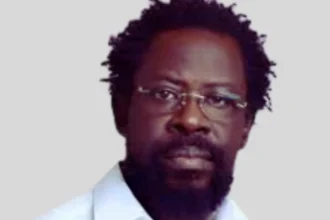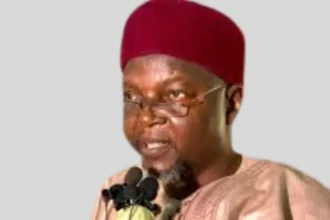VATICAN CITY — Pope Francis, the 266th pontiff of the Roman Catholic Church and the first pope from Latin America, has passed away at the age of 88. His death was officially announced this morning by the Vatican in a solemn statement delivered by Cardinal Kevin Farrell.
“At 7:35am this morning, the Bishop of Rome, Francis, returned to the house of the Father,” Cardinal Farrell said. “His entire life was dedicated to the service of the Lord and His Church. He taught us to live the values of the Gospel with fidelity, courage, and universal love, especially in favor of the poorest and most marginalized.”
The news comes just a day after Pope Francis appeared in public during Easter celebrations in St. Peter’s Square, offering blessings and words of hope to thousands of worshipers. Despite months of declining health and a 38-day hospital stay earlier this year, the pontiff had shown signs of strength and resilience that gave many hope he would continue his papal duties.
A Legacy of Humility, Reform, and Inclusion.
Born Jorge Mario Bergoglio in Buenos Aires, Argentina, Pope Francis made history in March 2013 when he became the first Jesuit pope, the first from the Global South, and the first non-European pontiff in over 1,200 years. His election marked the beginning of a new chapter in the Catholic Church—one defined by compassion, humility, and an unwavering focus on the underprivileged.
Throughout his 12-year papacy, Pope Francis championed social justice, interfaith dialogue, and environmental stewardship. He challenged global leaders to confront the crises of poverty, inequality, and climate change, famously authoring the 2015 encyclical Laudato Si’ on caring for “our common home.”
He also sought to modernize the Church, taking steps toward greater inclusivity by promoting open dialogue around issues such as LGBTQ+ rights, the role of women in the Church, and divorced and remarried Catholics. Though not without criticism from conservative factions, Francis was widely admired for his sincerity and spiritual courage.
A Pontiff in the Face of Suffering.
In recent years, the Pope’s declining health had become increasingly evident. He was hospitalized on February 14 for treatment of bronchitis, which later developed into bilateral pneumonia. He also battled kidney complications and a fungal lung infection, according to Vatican reports.
Despite his fragile health, Francis remained active as long as physically possible. On March 23, after 38 days in the hospital, he reappeared on a balcony at Gemelli Hospital, smiling and giving a thumbs-up to a cheering crowd. He later returned to the Vatican, continuing his recovery while still delivering messages and receiving dignitaries, including U.S. Vice President JD Vance just days before his passing.
Global Tributes and Mourning.
Tributes have poured in from around the world. King Charles III expressed his deep sadness, describing Pope Francis as “a man of profound faith and compassion.” UK opposition leader Sir Keir Starmer praised the pontiff’s “tireless efforts to promote a world that is fairer for all.”
In Rome, crowds have begun gathering in St. Peter’s Square to mourn and honor a pope many regarded as a spiritual father to the world. A somber scene unfolded as mourners lit candles, carried crosses, and prayed for the repose of his soul.
What Happens Next?
The Vatican will now begin preparations for the papal conclave—a sacred process that typically takes place within 15 to 20 days after the death of a pope. Cardinals from around the world will gather in the Sistine Chapel to elect the next Bishop of Rome.
As the Church and its 1.3 billion faithful mourn the loss of one of the most beloved spiritual leaders in modern history, Pope Francis’ legacy will undoubtedly continue to influence not just Catholic doctrine but also the broader moral compass of humanity.
He will be remembered as a shepherd of peace, a voice for the voiceless, and a humble servant who transformed the face of the papacy for a new era.


















